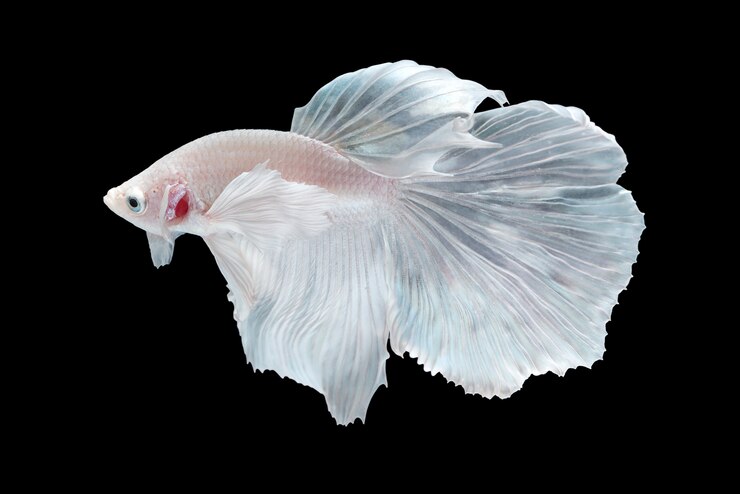Betta Turning White: Causes, Prevention, and Solutions
sBetta fish are renowned for their vibrant colors and graceful movements, making them one of the most popular freshwater aquarium pets. However, if you notice your Betta turning white, it can be alarming. A sudden change in color is not only distressing but may also indicate underlying health problems. Understanding why Betta fish turn white is essential for providing them with proper care. This article will explore the causes of color loss in Betta fish, the potential health issues associated with this change, and how to prevent or treat this condition to ensure your Betta fish remains healthy and colorful.
What Causes Betta Fish to Turn White?
Several factors can cause Betta fish to lose their vibrant colors and turn white. This discoloration can occur due to various reasons, ranging from poor water quality to disease. Identifying the root cause is crucial for addressing the problem and restoring your Betta to its healthy, colorful state. Below are some of the most common causes:
Poor Water Quality
Water quality plays a significant role in the health of Betta fish. If the water in your Betta’s tank is contaminated or lacks essential elements, it can lead to stress, which in turn can cause the Betta to lose its color. Common water issues that affect Betta fish include:
- High ammonia levels: Ammonia is a byproduct of fish waste and uneaten food. High ammonia levels can irritate the Betta’s skin and gills, leading to color fading or white patches.
- Low pH levels: Betta fish thrive in slightly acidic to neutral water (pH 6.5 to 7.5). If the pH drops too low, it can cause stress and discoloration.
- Unstable temperature: Betta fish are tropical fish and prefer temperatures between 75°F and 80°F (24°C – 27°C). Fluctuations outside this range can lead to stress, weakening the immune system and causing color changes.
Stress
Stress is one of the most common reasons for Betta fish turning white, stress can result from several factors, such as:
- Overcrowding: If the Betta is kept in a tank with too many other fish, especially other male Bettas, territorial disputes and aggression can cause significant stress.
- Inadequate hiding spots: Betta fish need space to hide and establish their own territory. Without adequate hiding spots, they may feel exposed and stressed.
- Inconsistent feeding: Irregular or poor-quality food can also cause stress. A Betta may lose its appetite if stressed, which can lead to nutritional deficiencies and color fading.
Illness and Disease
Betta fish are susceptible to several diseases that can cause them to turn white, either in patches or overall. Some of the most common conditions include:
- Ich (White Spot Disease): Ich is one of the most common parasitic infections in Betta fish. It causes small, white spots to appear on the Betta’s body, fins, and gills, which gives the appearance of the fish turning white. Ich is highly contagious and spreads quickly, so it’s essential to treat it as soon as possible.
- Fungal infections: White, cotton-like growths on the Betta’s skin may indicate a fungal infection. This can occur when the fish’s immune system is weakened, often due to stress, poor water quality, or injury.
- Fin Rot: This bacterial infection can cause the fins to become ragged, turning white or translucent. If untreated, it can spread to the body and cause the Betta to lose its vibrant color.
- Columnaris: Columnaris is another bacterial infection that can cause a Betta to turn white, with patches that appear on the skin, gills, and fins.
Age and Genetics
As Betta fish age, they may naturally lose some of their vibrant colors. Older Betta fish tend to lose pigmentation, which can make them appear paler or whiter. Additionally, some Bettas are genetically predisposed to lighter or more color-neutral tones, especially if they come from certain breeding lines.
Breeding Stress
When Betta fish are bred, they often undergo significant stress due to the change in their environment. Male Bettas may become more aggressive, and female Bettas may lose their color temporarily due to hormonal changes. This can lead to the Betta turning white, especially in the case of female Bettas who have not fully recovered from the breeding process.
How to Prevent Your Betta from Turning White
While some causes of Betta color loss are unavoidable, there are several steps you can take to prevent your Betta from turning white due to stress, poor water quality, or disease.
Maintain Proper Water Conditions
Keeping the water clean and well-maintained is the most important factor in Betta fish care. Regularly monitor the water parameters (pH, ammonia, nitrite, nitrate levels, and temperature). Make sure you:
- Change 25% to 50% of the water every week.
- Use a good filtration system to keep the water clean.
- Maintain a stable water temperature between 75°F and 80°F (24°C – 27°C).
- Keep the pH level between 6.5 and 7.5.
- Test the water regularly to ensure it’s free from harmful chemicals and pollutants.
Reduce Stress
To reduce stress and keep your Betta healthy, try the following:
- Provide hiding spots and plenty of space for the Betta to explore.
- Avoid overcrowding the tank; Betta fish do best in single-species tanks or with peaceful tank mates.
- Feed your Betta a balanced diet of high-quality Betta pellets, supplemented with occasional live or frozen foods.
Treat Diseases Promptly
If you notice white spots or patches on your Betta, it’s essential to address the issue immediately. Quarantine the affected fish to prevent the spread of disease and consult a veterinarian or a fish expert for the appropriate treatment. For Ich, for example, you may need to raise the water temperature and use an anti-parasitic medication.
Ensure Proper Nutrition
A Betta fish’s color is directly linked to its overall health and nutrition. Feed your Betta high-quality food and ensure it receives a variety of nutrients. High-protein foods like live or frozen brine shrimp, bloodworms, and daphnia can enhance their health and help maintain their color.
Avoid Overbreeding
Breeding Betta fish should be done carefully and under controlled conditions. Overbreeding or breeding stressed fish can result in the loss of coloration, so make sure the breeding process is monitored, and both the male and female Bettas are healthy and ready for it.
What to Do if Your Betta Fish Turns White
If your Betta turns white, the first thing to do is assess the situation. Check the water quality, look for signs of disease, and reduce any sources of stress in the tank. If the Betta is suffering from a parasitic or bacterial infection, you may need to administer medication. If you’re unsure about the cause, it’s always a good idea to consult a fish expert or a veterinarian who specializes in aquatic animals.
Conclusion
Seeing your Betta fish turning white can be worrying, but by understanding the causes behind the color change, you can take proactive steps to address the problem. Whether the issue is due to poor water quality, stress, or illness, identifying the root cause is key to restoring your Betta’s vibrant colors and ensuring it remains healthy. By maintaining a clean and stable environment, providing proper nutrition, and addressing health concerns promptly, you can enjoy a healthy and colorful Betta fish for years to come.







